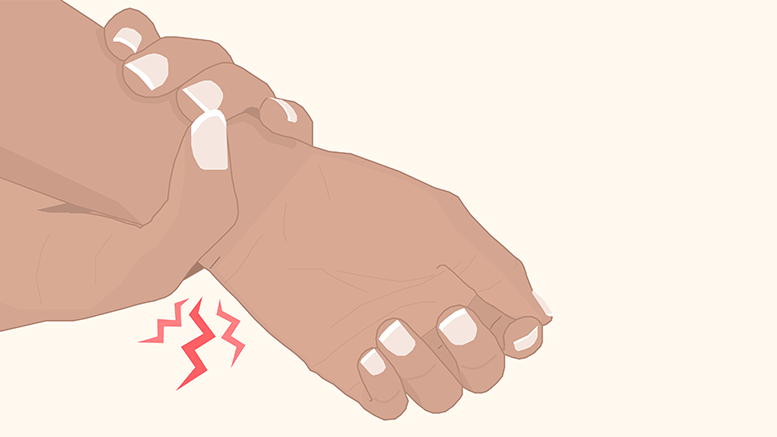Rheumatoid arthritis is a chronic autoimmune disorder that occurs when the body’s immune system mistakenly attacks its own tissues, causing the lining of the joints to swell painfully. This can cause fatigue and pain. Untreated, rheumatoid arthritis can severely damage the joints and tissues, and even compromise the heart, lungs and nervous system.
Hani El-Gabalawy is a physician and professor in the U of M’s Max Rady college of medicine. His focus is rheumatology, the study of conditions that cause swelling of the joints.
“’How does rheumatoid arthritis start, and can I do something about it?’ is a question that has driven my research for the last 30 years,” El-Gabalawy said.
His research career began studying the biology of synovial tissue, the joint lining that is chronically inflamed and ultimately destroys the joint in rheumatoid arthritis.
At the National Institute of Health in Maryland, he studied a cohort of early arthritis individuals, conducting biopsies to better understand the biology behind the disease. After he concluded his work, El-Gabalawy returned to Winnipeg.
“At the University of Manitoba, we continued the work,” he said, “but it really spurred our interest into [thinking] maybe we can go even further back before the inflammation starts in the joint, and understand how it starts before it ever starts, and then prevent it.”
For some groups, the search for preventative measures is especially urgent.
“As a clinician who practices rheumatology, I have seen over the years many, many individuals from First Nations backgrounds who have had rheumatoid arthritis and have not done anywhere near as well as their peers who are non-First Nations in terms of outcomes,” El-Gabalawy said.
Indigenous North Americans experience some of the highest rates of rheumatoid arthritis across the globe and are projected to have a lifespan 20 years shorter than their non-First Nations counterparts.
For El-Gabalawy, this provided a “strong impetus” to address these disparities through research.
In 2019, a paper co-authored by El-Gabalawy, “A Prospective Study of the Development of Inflammatory Arthritis in the Family Members of Indigenous North American People with Rheumatoid Arthritis,” was published in The Journal of Rheumatology.
The study tested a variety of characteristics and antibodies in 374 relatives of Indigenous people with rheumatoid arthritis. After around 4.7 years, researchers followed up with the relatives to see who had developed rheumatoid arthritis and compared them to those who did not. They compared their biology, symptoms and length of time until developing arthritis.
“This really has been a landmark paper, and has been widely quoted in the literature,” El-Gabalawy said. “We literally followed hundreds of people for many years to be able to publish that paper.”
He also emphasized the importance of screening for the risk of rheumatoid arthritis.
A new finger stick blood test allows individuals to simply put a small stick in their finger, put a drop of blood on blotting paper, place it in an envelope, and mail it to El-Gabalawy’s lab. There, it will be tested for antibodies that indicate rheumatoid arthritis risk. This method is useful for screening Indigenous people, regardless of where they live.
“We can screen people who are hundreds of miles away without having to have complicated research teams traveling,” he explained. “Screening is very important finding effective ways of preventing rheumatoid arthritis from starting.”
Nutritional supplements, El-Gabalawy added, also present an area of future research. His team is working with a combination of curcumin, the active ingredient in turmeric, omega-3 fattyacids and vitamin D to prevent rheumatoid arthritis in at-risk people.
“We’ve shown in an animal model, in a mouse model of rheumatoid arthritis, that this can be very successful,” said El-Gabalawy. “Now, we are launching a clinical trial in people at risk to see if it reduces their risk.”
“We are privileged to be part of the new wave of preventing an autoimmune disease before it ever starts.”
El-Gabalawy motivates aspiring researchers by emphasizing, “If you have a passion for research, the most important thing […] is to find the right question.”
He added that once you do, tenacity, dedication and passion are essential to overcoming obstacles and achieving your goals.



